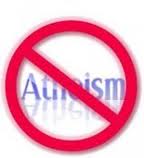Sorry I haven't had time to post on here for some time, but I have been putting together an escape plan from the coming destruction of America thanks to Obama Care. This post is resuming my refutation of God is Imaginary. Since I don't have time for a full essay, instead I'll put together some refutations along with the original article. My comments are in brackets and italicized.
"The fact is, God never answers any prayers. The entire idea that "God answers prayers" is an illusion created by human imagination
[What type of prayers is he talking about? Prayers to saints? Prayers for the dead? Contemplative prayer? If it is any of these, you're not supposed to get an answer. If he's not talking about any of these, then he's misguided, as we will soon see.]
How do we know that "answered prayers" are illusions? We simply perform scientific experiments. We ask a group of believers to pray for something and then we watch what happens.
[In theory, that might make sense but in practice, atheists often dismiss confirmed studies or facts that don't agree with them. Why? Mostly, because they claim the study was biased somehow. Let's ignore how you're supposed to refute what they're saying and not attacking the person making them and let's move on.]
What we find, whenever we test the efficacy of prayer scientifically, is that prayer has zero effect:
- It does not matter who prays.
- It does not matter if we pray to God, Allah, Vishnu, Zeus, Ra or any other human god.
- It does not matter what we pray about.
[That is a complete lie. Studies have shown prayer does help people recover faster after surgery, help them have less mental and physical problems, and have better life outlook.]
"Every single "answered prayer" is nothing more than a coincidence."
[This depends what is meant by coincidence. Is it coincidence that a bell rings and you hear a sound or you eat and you get less hungry with each bite? While those might be more cause and affect then coincidence, consider the mathematical improbabilities to alternative explanations. This will come into play a little later.]
Both scientific experiments and your everyday observations of the world show this to be the case every single time.
For example, this article says:
-
One of the most scientifically rigorous studies yet, published earlier
this month, found that the prayers of a distant congregation did not
reduce the major complications or death rate in patients hospitalized
for heart treatments.
-
A review of 17 past studies of ''distant healing," published in 2003 by a
British researcher, found no significant effect for prayer or other
healing methods.
-
In the largest study of its kind, researchers found that having people pray for heart bypass surgery
patients had no effect on their recovery. In fact, patients who knew
they were being prayed for had a slightly higher rate of complications.
- [Interesting but suffers from one major problem: if he is so quick to dismiss prayer because it's "just a coincidence", couldn't an equal and better case be made that prayer not working is just a coincidence or would that be too biased for atheist's taste?]
-
Religious leaders will breathe a sigh of relief at the news that
so-called intercessory prayer is medically ineffective. In a large and
much touted scientific study, one group of patients was told that
strangers would pray for them, a second group was told strangers might
or might not pray for them, and a third group was not prayed for at all.
The $2.4 million study found that the strangers' prayers did not help
patients' recovery.
- [A very misleading statement from an ill informed article. The only people they mention are Paul Tillich and Karl Barth. Both were theologians but neither were ever considered religious leaders. The quote is from the article's author, not from a religious leader. I like the part where it claims the Lord's Prayer doesn't ask God to intervene in human affairs....except for that whole "lead us not into temptation" thing.]
[ If anything, his article is total waste of time. While the jury overall is still out as to whether prayer's effects can be proven by strict science, here's what we do so far:
1. A study in British Medical Journal in 2001 showed by praying a rosary, baroreflex sensitivity increased significantly in cardiovascular patients.
2. Another 2008 study showed higher levels of prayer were associated with better mental health as measured by lower psychoticism scores.
3. A 2001 study by Meisenhelder and Chandler analyzed data obtained from
1,421 Presbyterian pastors surveyed by mail and found that their
self-reported frequency of prayer was well-correlated with their
self-perception of health and vitality.
Do these sound like a waste of time to you?]
It does not matter that all of Jesus' promises about prayer in the Bible have been proven completely false.
[More about this to come]
A peer-reviewed scientific study published in 2001 did indicate that prayer works. According to this article:
-
"On October 2, 2001, the New York Times reported that researchers at prestigious Columbia University
Medical Center in New York had discovered something quite
extraordinary. Using virtually foolproof scientific methods the
researchers had demonstrated that infertile women who were prayed for by
Christian prayer groups became pregnant twice as often as those who did
not have people praying for them. The study was published in the
Journal of Reproductive Medicine. Even the researchers were shocked. The
study's results could only be described as miraculous."
[So what about the ones that were not fraudulent?]
The dictionary defines the word "superstition" in this way:
-
An irrational belief that an object, action, or circumstance not
logically related to a course of events influences its outcome. [ref]
- [Prayer has never been considered superstition]
[Except it hasn't as several verified studies have shown.]
Another proof that atheists are idiots.

No comments:
Post a Comment